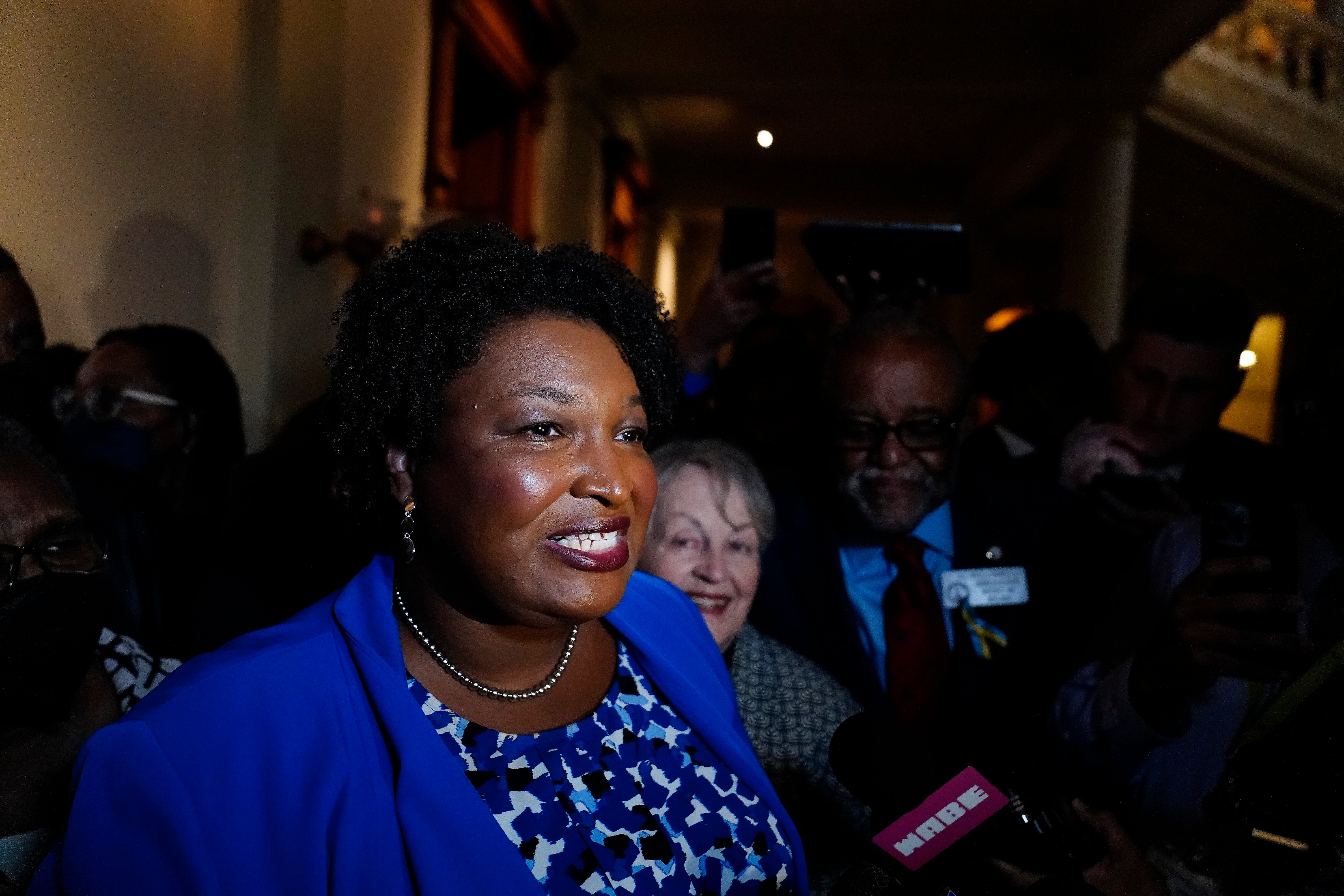Judge denies Abrams bid to seek unlimited contributions
A federal judge has ruled that Georgia Democratic gubernatorial candidate Stacey Abrams cannot immediately begin raising and spending unlimited campaign contributions under a new state law

Your support helps us to tell the story
From reproductive rights to climate change to Big Tech, The Independent is on the ground when the story is developing. Whether it's investigating the financials of Elon Musk's pro-Trump PAC or producing our latest documentary, 'The A Word', which shines a light on the American women fighting for reproductive rights, we know how important it is to parse out the facts from the messaging.
At such a critical moment in US history, we need reporters on the ground. Your donation allows us to keep sending journalists to speak to both sides of the story.
The Independent is trusted by Americans across the entire political spectrum. And unlike many other quality news outlets, we choose not to lock Americans out of our reporting and analysis with paywalls. We believe quality journalism should be available to everyone, paid for by those who can afford it.
Your support makes all the difference.Georgia Democratic gubernatorial candidate Stacey Abrams cannot immediately begin raising and spending unlimited campaign contributions under a state law passed last year because she is not yet her party's nominee, a federal judge ruled Thursday.
Abrams and her One Georgia committee filed a lawsuit last month challenging the constitutionality of the new law, which allows certain top elected officials and party nominees to create “leadership committees” that can raise campaign funds without limits. But they also asked the judge to order the state ethics commission not to take any action against them if they continue to raise money before the primary next month.
“This Court will not rewrite Georgia law to enable One Georgia to stand in the same shoes as a leadership committee that, in Plaintiffs' view, is operating in violation of the First Amendment,” U.S. District Judge Mark Cohen wrote in his order.
The law allows the governor and lieutenant governor, opposing major party nominees, and both party caucuses in the state House and Senate to form leadership committees. Unlike traditional political action committees, they are allowed to coordinate with a candidate's campaign.
Leadership committees can also collect unlimited contributions, while candidates for statewide office cannot collect more than $7,600 from an individual donor for a primary or general election and $4,500 for a runoff election.
The lawsuit noted that the new law allows Republican Gov. Brian Kemp to raise unlimited funds while Abrams is constrained by the contribution limits.
Abrams is the only Democrat who qualified to run for governor, which means she is effectively the party's nominee, her lawyers argued. State party chair U.S. Rep. Nikema Williams submitted a sworn statement saying that Abrams is the party's nominee.
But state law is unambiguous in requiring a candidate to be selected in a primary election to be considered the nominee, Cohen wrote. Georgia's primary election is set for May 24.
Abrams and her committee could have followed the path chosen earlier this year by former U.S. Sen. David Perdue, who is challenging Kemp in the Republican primary. Perdue sought to stop Kemp's leadership committee Georgians First from soliciting or receiving contributions and to stop it from spending money to promote his reelection.
Cohen ruled in February that Kemp could not spend any more money from the committee on his primary campaign. But he said the committee could continue to receive contributions and spend money in support of other public officials in accordance with campaign finance laws. Kemp has appealed the ruling.
Cohen wrote that Abrams and her committee chose an “untenable option” by asking to be allowed to raise unlimited funds under a law that they contend is unconstitutional. He also rejected the attempt to prevent a Georgia state agency from enforcing a law that says a nominee for governor is chosen in a primary.
Cohen's ruling was not a surprise. He was clearly skeptical of Abrams' requests at a hearing earlier this week.